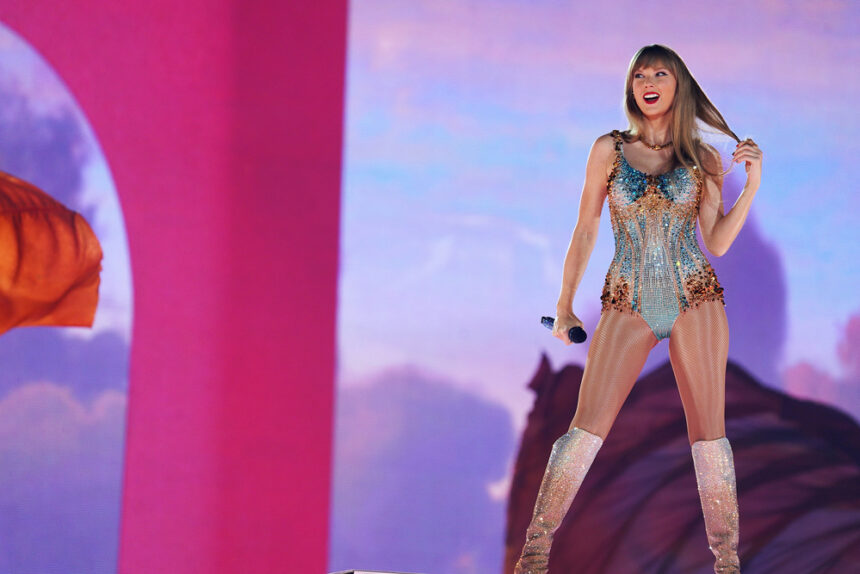a My Recent Posts We looked at the market for restaurant table reservations. Restaurants with high demand and long waiting lists may raise their prices to clear the market. For potential reasons discussed in the article, restaurants do not do this, leaving room for third parties to buy and sell reservations for profit.
Similar economics apply to third-party concert ticket sales that include surcharges. In the wake of growing public anxiety over event ticket prices with surcharges, such as the Department of Justice lawsuit against Live Nation and the passage of the Ticket Act in the House of Representatives, it is instructive to consider the economics of third-party ticket sales. A complaint was made The investigation by the Justice Department and 29 state attorneys general is multifaceted and covers numerous actions by Live Nation and its subsidiary Ticketmaster in various markets, but such analysis is largely absent from the discussion of the main ticket marketplace.
Popular artists like Taylor Swift Exclusive. They are the sole producer of high quality products request And there’s an economic benefit to this: ticketing companies exist because of the huge transaction costs that artists, their agents, promoters, and venues incur to track down all the fans who want to attend a show and sell them the tickets at the right price.
If an artist or venue sets the price of a show too low, the number of ticket buyers will exceed the number of tickets available. This gives third-party sellers leeway to charge fees at the end of the sale, because the artist has not fully captured the potential rent from their fans and the new price with fees added in better reflects the actual demand.
of Online Crash This phenomenon, which occurred when tickets went on sale for Taylor Swift’s “Eras” concert in November 2022, indicates that demand at the original list price, or “face value,” significantly exceeded supply. As a result, there was a shortage of full-price tickets.

To be sure, third-party intermediaries like Ticketmaster typically add a fee to the face price to cover their costs and make a profit by facilitating distribution. But the power of these fees to add to the final sale price is determined primarily by the artist’s popularity, i.e. Artist’s Monopoly power – not their own.
Take baseball as an example: if you wanted to attend a regular season game at Camden Yards in Baltimore in 2018, it didn’t matter if you forego buying your ticket online and bought it at the gate right before entering the ballpark. Because the Orioles won only 47 of 162 games that season, demand for tickets wasn’t high, and third-party sellers didn’t have much power to increase the selling price.
With this in mind, ticket popularity and demand will likely determine how much extra fees vary across artists and shows. You can expect the extra fee to be higher to see Dave Matthews Band at Jiffy Lube Live in Bristow, VA than the extra fee to see a local DC band that isn’t well known nationally at a 9:30 club. Simply put, shows with high demand will have higher fees, and the more affordable the tickets, the higher the expected extra fee.
Economists have long debated the economics of reselling tickets through third-party brokers or “scalpers.” Great EconTalk Podcast You can read more about this topic here. An important question for economists arises from the above insight: if artists have monopoly power, why don’t they acquire monopoly rights? Why leave a portion of the profits to be collected by third-party sellers and scalpers?
One of the reasons literature This means that artists and promoters cannot make a profit by selling tickets at a higher price in the late market because the price is undercut by third-party brokers: to maximize profits, they must sell at a fixed price only in the early market. Further explanation The idea is that artists give fans a larger surplus of ticket sales money, encouraging them to spend it on other items, such as merchandise. To capture their profits, promoters often hand over tickets to third-party sellers, who in return get a cut of late-market sales. No matter which way you look at it, rising ticket prices are driven by: Increasing demand and inelastic supply.
Overall, ticket resales are likely to increase efficiencythat is, the overall profits derived from market transactions. Concert-goers benefit from the existence of an active resale market because they either do not know about the opportunity or do not want to take advantage of it until closer to the show. Consider a business executive who buys Taylor Swift tickets from a woman. $20,000 on the resale market.
Policymakers should keep this in mind when considering measures to combat “junk fares” or “excessive” ticket prices: when policies make market transactions more difficult, they are likely to reduce efficiency without any offsetting benefits.
It’s common that scene from The Simpsons Here’s a bit of wisdom revealed: In season five, Homer sleeps in line for a week to get tickets to a popular show. In his excitement, he exclaims, “I’m second in line, and I only took a week off work!” A passerby remarks, “I could have bought the tickets from a scalper with my hard-earned money.” Homer replies, “In theory, that makes sense… idiot.”
Giorgio Castiglia is program manager of the Competition Project at the Marketas Center and a doctoral student in economics at George Mason University.




